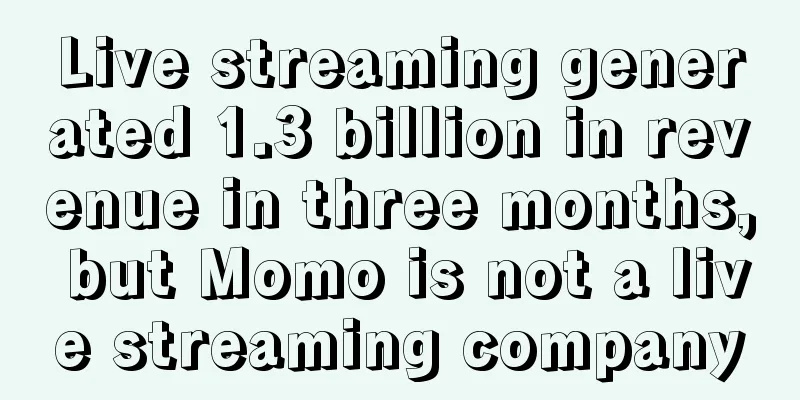Cook recalls Steve Jobs in a long interview: He was my best teacher

|
On March 19, Fast Company published an exclusive interview with Apple CEO Tim Cook on Wednesday. In the interview, Cook talked about the Apple Watch, Steve Jobs' previous views on Apple's future, and how Apple can break out of the box. The following is the full interview: Jobs' Philosophy Q: What impact has Jobs' legacy had on Apple? Cook : Steve Jobs believed that most people lived in small closets. They believed that they could not have a big impact on things and make a big difference. I think Steve Jobs would call this a "limited life." Unlike other people I met, Steve Jobs never accepted this philosophy. He asked each of us (Apple's executive team at the time) to reject the idea that if you can do that, then you can drive change. If you think there's no limit to what you can achieve, then you can change the world. This was the main thread of Jobs' life, and it also brought him great creativity. In practice, he brought this spirit into Apple. Other things happened based on this philosophy, where we focused on small problems and grew into the best products in the world. And to build the best products, you need to have best-in-class technology. Jobs believed that if Apple could do that, build great products and tools for people, then people could do great things. He thought that would be his greatest contribution to the world. We still believe that, and it's still at the core of Apple. There is a disease in the tech industry where success is defined by maximizing numbers. How many clicks do you get? How many active users do you have? How many units did you sell? Everyone in the tech industry seems to want to see big numbers. Jobs would never do that. He wanted to make the product the best it could be. When I came to Apple (Cook left Compaq to join Apple in 1998), it changed my mindset. I had been working primarily in the Windows world, where numbers mattered. That's still the case. When Apple looks at what industries to enter, we ask questions like: What is the main technology behind this industry? What can we bring? If we do this, can we make a greater contribution to society? If we can't, if we can't master the key technology, then we won't do it. This philosophy comes directly from Jobs and is still permeated in every corner of the company. I hope it will always be so. Q: Did this philosophy influence decisions about the Apple Watch? COOK : Yes. Use Apple Watch every day Q: Is that an Apple Watch on your wrist? COOK : Yes. Look, my calendar is here, and here's the time, date, and temperature. Here's the Apple stock price. Here's my activity for the day. You can also check yesterday. So far today, I haven't burned enough calories. When you look at watches, the technology here is software and user interface. You're dealing with a small screen, so you need to invent new input methods. The input methods that work on phones, tablets and Macs don't work on smaller screens. Most companies developing smartwatches haven't thought about this, and they still use the pinch and pinch gestures that we designed for the iPhone. Try these features on a phone and you'll see they don't work very well. So we need new ideas, like Force Touch. On a smaller screen, you need to add another element to the user interface. Just press a little harder and you can bring up another hidden user interface. In a way, this makes the screen bigger. This is something that took us many years to realize, and it's something that we've tried and optimized over and over again. Don't launch a product before it's ready, and be patient. This is how we approach watches. And we're not the first company in this space. We weren’t the first company to launch an MP3 player, we weren’t the first company to launch a tablet, and we weren’t the first company to launch a smartphone. But we launched the first contemporary smartphone, and we’re going to launch the first contemporary smartwatch. Q: When the iPod came out in 2001, expectations were low. When Apple introduced the iPhone in 2007, expectations were sky-high. What about the smartwatch? COOK: With the iPod, expectations were really low. A lot of people were not optimistic about the price of the iPod at that time. Who would want this? Who would buy this? We heard a lot of the same old things. With the iPhone, we raised expectations. We said we wanted to capture 1% of the market, which meant selling 10 million phones in the first year. We set a goal, and we exceeded it slightly. Regarding the watch, we don't have a target. The watch needs to be used with the iPhone 5, 6 or 6 Plus, so there is a ceiling in this market. But I think Apple Watch will sell well. I am excited about this product. I use Apple Watch every day and I don't want to leave it. Q: When the iPhone was first launched, there were no third-party apps. Eighteen months later, as Apple opened the phone to app developers, the value of the iPhone became completely different. So what do you foresee for the watch to develop? COOK : Developers, as you said, were key to the phone. They were key to the iPad, especially because they optimized their apps for the tablet, not just scaled up iPhone apps. They're going to be key to the watch, absolutely. Of course, this time we saw the importance of doing this from the beginning. In mid-November last year, we released the software development kit (SDK). So when Apple Watch goes on sale in April this year, users will have access to many third-party applications. There will be enough applications here to satisfy people's imagination. Q: Many people find it difficult to imagine what a watch is actually used for. COOK: That's right. But people also didn't realize what they needed with the iPod, what they needed with the iPhone, and the iPad was met with fierce criticism. Critics asked, "Why do you need this?" Frankly, any revolutionary move we've made was not initially anticipated, and people only saw its value in retrospect. Maybe that's going to be the case with the watch. Jobs' greatest contribution is Apple culture Q: You talked about how Jobs didn't want people to be tied down, and part of that was that he held himself to an almost insane standard of excellence. He personally lived up to that. Do you play the same role now, or is the quality control more decentralized? Cook: The reality is that this has always been decentralized. When Steve Jobs was around, he didn't control everything, and now Apple is three times the size of what it was in 2010. So do I control everything? Not at all. This is a collaborative effort of many people in the company, and the culture drives it. To those outside the company, Jobs seemed to be micromanaging every detail, making sure all the circuit designs were correct and all the colors were appropriate. Yes, he made a lot of decisions. His energy was incredible. But he was also only human, and he knew it. The people he chose helped drive the culture at Apple. You've heard stories about Jobs walking down the hall and going crazy because he didn't like what he saw. Yes, that happened. But it would be a big mistake to assume that he controlled everything at Apple. The most important thing he did was to shape the culture within Apple, to select great teams, and more teams. Jobs is not considered a mentor, but he was by far the best teacher I ever had. He was not traditional as a teacher. But he was brilliant. I can give you an example. Last year, Apple was a $200 billion business. We are probably the largest smartphone company in the world, maybe one of the largest. Would it have been possible for the company to achieve that if Jobs had really done everything himself? No way. Steve Jobs' greatest contribution and greatest gift to the world was Apple and its culture. He cared deeply about it. He spent a lot of time designing our new campus, which will be a gift to the next generation. Apple University is another example. He wanted to use Apple University to train the next generation of Apple leaders and ensure that the lessons of the past are not forgotten. Q: Jobs' focus on small teams has benefited Apple, but as Apple has grown, it seems to be increasingly difficult to maintain efficiency and avoid corporate bureaucracy. COOK: But actually, the rewards for doing that are getting bigger and bigger. You're right, it's hard to do this, and you have to avoid inertia. But if you believe that you are not confined to a small box, then you can do it. We're working more collaboratively because it's clear that if we want to be the most successful, we have to collaborate with the best people in the world. The magic of Apple from a product perspective is that it's the intersection of hardware, software, and services. Without collaboration, you'd have a Windows-like product. One company would do the operating system, another would do the hardware, and others would do something else. That's what's happening with Android right now. Putting all of that together doesn't make for a great user experience. Jobs realized early on that a vertically integrated model would allow us to deliver a great user experience. For a long time, this idea was considered crazy. However, more and more people have seen that he was right, and you need to make everything work together. The difference between Apple and Microsoft is that Apple dares to disrupt Q: Steve Jobs would always say that what differentiated Apple from other computing companies was that Apple built “the whole product.” Originally, that meant building the hardware and software for a computer, or building something like an iPod. But now, the “product” is much bigger. It’s become the entire “Apple experience,” which means the iPhone, iPad, Mac computers, and now the watch. These products need to work seamlessly with cloud computing services, music and video content from artists and studios. Is that still under control, or are we starting to see cracks? After all, you have so many different interfaces to maintain. Microsoft ran into the same problem when it wanted to make its operating system all things to everyone. COOK: I think it's a completely different situation. Part of the reason Microsoft is having this problem is that they don't want to give up their legacy. Apple has a history of making bold decisions that disrupt the past. We got rid of disks when they were popular. We don't tend to spread and minimize risk in the traditional way. We introduced optical drives and changed the interface, even though many people still liked the 30-pin interface. Some of these products were not popular for a long time. But you still have to move forward. We are still doing it. So I don't buy into the Microsoft analogy, it's completely different. Yes, it's more complicated. When you're building a Mac, it's just one product. But if you're building a phone and you want to optimize it for the lowest dropped calls, but you need to work with 300 or 400 carriers around the world with different network conditions, then yes, it's more complicated. And continuity across platforms is more complicated. Now, users want to start an email on their iPhone, but then finish it on their iPad or Mac. They want a seamless experience across all products. When you were just building Macs, that experience was just one product. But now you have three products, plus the cloud. So it's more complicated. That's for sure. We try to shield users from this complexity. We don't want users to see complex and difficult engineering. Users can use our products the way they want without having to worry about anything. Sometimes we're not perfect. That's what you call "cracks." In some cases, it's true, and we fix those cracks. I don't think there's anything wrong with our model. But we are human, and we can make mistakes. I don't set non-human goals, but my goal is to make as few mistakes as possible. We have made mistakes in the past, and we have never been perfect. Fortunately, we have the courage to admit this and correct it. Q: But you're still fighting inertia. Aren't you worried that this is going to become a huge undertaking? COOK: No, because we don't live in closed boxes. We live outside of boxes. What I see is that we need to stick to the principles of defining problems so that we can solve them. If you try to focus on the complexity, it becomes an impossible dream. But if you step back and look at the problem from a different perspective and think about what you are actually trying to do, then I think it becomes possible. To a large extent, we think we're trying to prove that. If you look at the App Store, we're doing something at a scale that's unprecedented. There are 1.5 million apps in this store. Would anyone have predicted that a few years ago? We're still nurturing these apps. Our users expect us to do that. If they buy an app, they expect it to do what it says on the tin. Q: Are you going to abandon some of the legacy of the Jobs era in some fundamental way? Cook: We change every day. When Steve Jobs was still here, we changed every day. But at the core, the core values are still the same as they were in 1998, 2005, and 2010. I think the values should not change, but everything else can change. We can accept that some of the things we say now will look completely different in two years. In fact, some of the things we say now will look different in a week. We think it's a good thing to have the courage to admit that. Q: Jobs did this all the time. COOK: Absolutely. I mean, Steve was the best disruptor in the world. And that's because he never held on to a particular position or view forever, but to a particular philosophy and values. The fact that we want to change the world has not changed. That's a big picture view, and that's why we come to work every day. It has not been decided whether to move Jobs' office to the new campus Q: Are you looking forward to Apple's new campus? (Apple plans to move its headquarters to the new campus in 2016.) If you were the CEO when the decision was made, would you support the construction of such a new campus? Cook: For Apple, the key point is to avoid being too formal as much as possible, and one way to achieve this is to get everyone together. This should not only be in meetings, but also in all aspects of daily work, such as in a coffee shop or taking a walk. We didn't anticipate the growth of our workforce, so our campus can no longer accommodate everyone. We are currently spread out over hundreds of buildings, but nobody wants that. Now we will all be able to work on one campus. So I fully support the construction of a new campus. Q: As Apple's workforce grows, with different generations working together and more new people coming in, how is this culture conveyed to new employees? Are there things that need to be systematized? Cook: I don't think it's systematic, but we do do something starting with employee training. In fact, it's already happening from the interview process. You pick people who fit the culture. Although you want a diverse team with diverse experiences and problem solving, you also want people to follow the same philosophy. It's not passive acceptance, it's deep belief. Then there's employee training. We're doing this across the company globally. Then there's Apple University, where people look at past events and analyze them to understand how and why decisions were made, how success was achieved, and why certain things failed. Those things have helped. Ultimately, business leaders need to set the tone. This is not just the job of the CEO, but also the job of leaders throughout the company. If you choose your leaders carefully, they will also choose the right employees. Q: I noticed that Jobs’ nameplate is still on the door of his former office. COOK : Yes. Q: Why is this? Will you continue to do this in future new office buildings? COOK : I haven't decided what we're going to do in the new building. But I want to keep his office the same. I went there one day with Steve's widow, Laurene, and there were drawings on the whiteboard by Steve's daughter. In the summer, I took Steve's daughter Eve there, and she saw the drawings there from a few years ago. At first, I personally didn't want to go there. It meant too much to me. Now, it brings me a lot of emotions, but I don't go there very often. I don't know what we're going to do over time. I don't want to move into that office. I think that Jobs is irreplaceable, so it's not right for anyone to continue to use that office. His computer is still there, as always, and his desk and books. But Lauren took some things home with her. I'm not sure. Jobs' name should still be on the door. That's the way it should be, and it feels right to me. |
<<: Is Android controlled by Google not a good Android?
>>: Apple releases OS X Yosemite beta 5, continues to optimize Photos app
Recommend
Case analysis: Xiaohongshu advertising strategy!
This article will take Cemoy, an Australian skinc...
8 App Rapid Development Tools That Developers Must Know
"I have a great idea, all I need is a CTO......
【Huang Xiaoqing】The first Chinese business leader won the IEEE CQR Chairman Award
On the morning of May 11th, Beijing time, the Ins...
The iOS promotion and operation master gave me a sudden enlightenment: how to tap into iOS channels, etc.
[[134146]] Question 1: I don’t know where to tap ...
Tongling Mini Program Production Company, how much does it cost to produce a digital mini program?
The main factors affecting the price of mini prog...
Tech Neo July Issue: Technology Entrepreneurship
51CTO Network+ Platform launched the "TechNe...
The correct way to use the prompt box in iOS9
[[154064]] In the process of upgrading from iOS8 ...
36 essential professional terms for playing Tik Tok in 2022
Douyin e-commerce must understand professional te...
Xiaohongshu KOL distribution model and content marketing methodology
We provide you with a practical summary of brand ...
Teacher Guo's "Solve Problems Like an Expert" Intensive Study Class
Resource introduction of Mr. Guo's "Solv...
2019 traffic growth inventory!
2019 has not been an easy year, so today we will ...
When will the two sessions end in 2022? What time does the closing ceremony start and end? Live broadcast address is attached!
Recently, my country's two sessions have been...
Mobile Internet Marketing Director Operation and Promotion Planning Case
In recent years, mobile Internet has developed ra...
What are the start dates for primary and secondary schools in Xinjiang in 2020? Will primary schools in Xinjiang start in March?
On March 11, the Education Department of the Xinj...
How should tool apps operate?
Two days ago, a reader gave me a trial of their t...









